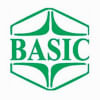Is corruption really that easy?

The exploits of a former employee at a fertiliser factory under the state-run Bangladesh Chemical Industries Corporation (BCIC) really make one wonder how embedded corruption is in the public system. It is as if anyone can wake up one day, decide to dirty their hands, and there will be no stopping them. The man in question, Khandakar Mohammad Iqbal (42), worked for 14 years at the Shahjalal Fertiliser Factory in Sylhet. According to a report by Prothom Alo, he was assistant chief accountant when he was fired for embezzlement in 2018. Later, an investigation by the CID revealed that he had embezzled Tk 38 crore during the five years when he occupied that position.
Iqbal allegedly took this money out using fake bills and receipts through companies registered under his wife's name. Their illegally accumulated wealth includes an eye-popping 91 vehicles (microbuses, private cars, vans), several flats and land plots, two department stores, etc. Currently, the couple are in jail pending trial in a number of corruption cases filed by the Anti-Corruption Commission and the CID. The question is, how could one man embezzle so much money from a government institution? If the allegations against Iqbal are true, he had certainly had help from his colleagues and superiors. Surprisingly, no one from BCIC or the fertiliser factory has been implicated yet.
The story of Mohammad Iqbal shows just how vulnerable the whole public system – with all the government, semi-government, autonomous, and semi-autonomous offices that are run with public money – is to corruption, which is often committed using systemic loopholes and political influences. Over the years, we have frequently published reports on corruption in various sectors. Unfortunately, despite the administration's so-called "zero tolerance" policy on corruption, it has been harder to tackle in the absence of an effective institutional accountability mechanism. Bangladesh, as a result, is increasingly becoming synonymous with corruption and financial scandals. We urge the higher authorities to undertake drastic reforms in how public offices are run in order to reverse this trend. The future of Bangladesh depends on it.


 For all latest news, follow The Daily Star's Google News channel.
For all latest news, follow The Daily Star's Google News channel. 









Comments